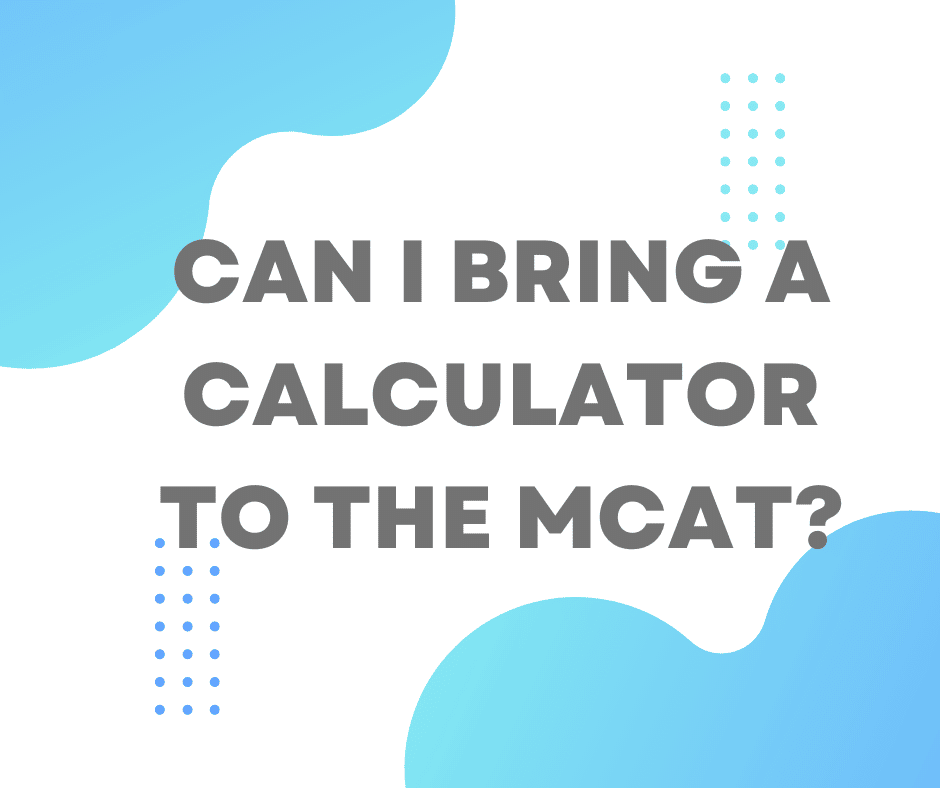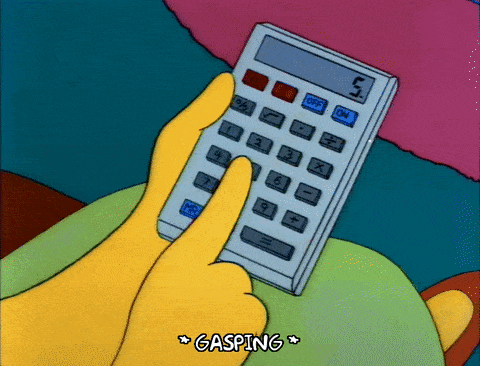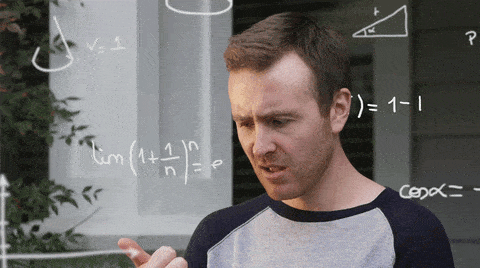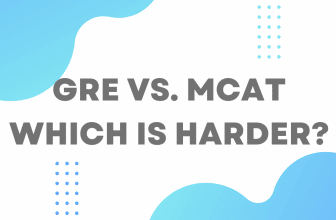

If you’re wondering if you can use a calculator on the MCAT you’re not alone.
This is one of the most popular questions we get!
So can you Use a Calculator on the MCAT?
The MCAT is a difficult test in part because the AAMC forbids students from using calculators on test day.
This, however, is not a cause for alarm.
Wondering why you can’t use your handy calculator for the MCAT?
Candidates must be able to answer mathematical problems based on their knowledge of, among other things, physics, chemistry, and statistical reasoning. It’s important you can do this without the help of a calculator. Don’t worry though, with a few strategies and plenty of practice, it’s possible to pass the test without using a calculator.

The MCAT exam is more of a reasoning test than a test of mathematics. The test’s objective is to determine whether applicants have the aptitude and motivation to study for admission to medical school. The test aims to assess students’ ability to read the provided material, understand it, and then solve the problem without giving in to the pressure of an exam setting. Their capacity to face difficult issues and passages, use their knowledge, and find the right answer to each question is tested. The ability of children to enter numbers into a calculator has little bearing on how well they can reason and solve problems.
Blueprint MCAT Prep Course Review
Due to the lack of challenging math questions on the MCAT, many people mistakenly believe that calculators are allowed. This is not totally accurate, though. Strong mathematics abilities are necessary for many questions.
The MCAT asks students to come up with a superior and potentially even more straightforward answer for these issues. The main recommendation is to maintain composure when faced with a big volume of daunting numerical data. Therefore, even without a calculator, the math component of the MCAT is extremely manageable with the right knowledge of when to employ specialized and pertinent mathematical methods. Additionally, allowing calculators would prevent test-takers from testing your conceptual reasoning skills.
How Does This Affect Your Performance On the MCAT?
The MCAT is another test where you must perform calculations without using a calculator within the testing facility. However, for students, this implies that their work becomes straightforward enough for them to do it independently. It implies that there will be a quick and simple solution available to them when they encounter a certain arithmetic problem on the exam. Additionally, it means that the numbers provided on the question can be easily changed into simpler forms to make the computations much easier. They can be transformed into decimals, basic fractions, or other scientific notations, for instance. In general, students who put in enough practice should have little trouble answering all of these questions.
Additionally, because the MCAT exam is not specifically designed to assess students’ mathematical proficiency, it is another reason why calculators are not permitted. So why go through the extra trouble of making challenging arithmetic problems that demand intricate equations and big numbers? Since the main goal of the MCAT is to assess students’ aptitude for medical school rather than mathematics education, the creators can simply rely on simple and fundamental math!

Blueprint vs. Princeton Review MCAT
Did you recently finish your premed program and have started preparing for the MCAT exam? If so, you may feel overwhelmed and wonder which …
Best strategies to take the MCAT without a calculator
Although it may seem overwhelming, learning to do math without a calculator is not that tough. During the exam, you are still permitted to solve problems using mental math or rough paper. It’s time to start working on some practice problems if you are unsure of your ability to solve mathematical problems mentally. After all, a lot of time has gone since we were taught some of these concepts in primary school.

The secret to succeeding on the MCAT’s Math section is to practice the straightforward shortcuts and strategies for simplifying challenging questions. There are no lengthy computations required to get at the solution because you are not permitted to use a calculator. The statistics may appear confusing and disorganized at first look, but there are always easy ways to make them clearer.
Which MCAT Questions Would You Need A Calculator?
The MCAT is a conceptual test with limited mathematical computation requirements. Arithmetic, algebra, and trigonometry are only a few examples of the basic mathematical ideas that are used to support any such needs. Calculus is not required. Additionally, the mathematical issues typically emerge in the part on the chemical and physical underpinnings of biological systems. A general understanding of the fundamental statistics utilized in research is sufficient for the other exam components.
How to Pass the MCAT Without a Calculator
It is advisable to review some fundamental arithmetic concepts before taking the MCAT exam so you can save time and perform better. The following advice can assist you in being ready to perform quick math without the aid of a calculator.
You can approximate most problems easily to help you finish the math more quickly. Long calculations cannot be done during the exam due to its duration. Always keep in mind that the math problems on the MCAT will be straightforward, saving you time. They can only be resolved with a pen and paper. Do not let pressure from large or complicated numbers overwhelm you. There will always be an easy solution.
You can immediately round numbers in the problem that appear to be difficult to make handling them easier. The secret to succeeding in this part is to round numbers to simplify calculations. Before immediately rounding your values, make careful to look through the possible answers. You should exercise greater caution if you believe that the response options have extremely similar values. Never forget whether you rounded the numbers upwards or downwards. The actual result will be lower than your computation if you rounded up, and vice versa.
When solving math-based tasks, you should be aware that you are probably wasting your time if you feel like you are making incredibly intricate calculations on rough paper. If you just can’t figure it out, you don’t need to give an exact response and you should probably move on to the next question.
In addition to these pointers, you should practice arithmetic problems prior without a calculator. Even though the calculations will be simple, they can be made even simpler by practicing. As part of your MCAT preparation, revisit some outdated topics and do some math. Do not be scared by a few calculation-based exam questions; always keep in mind that each question carries the same marks.









